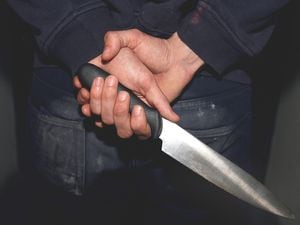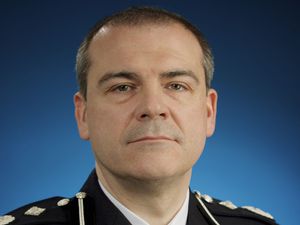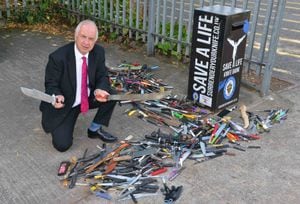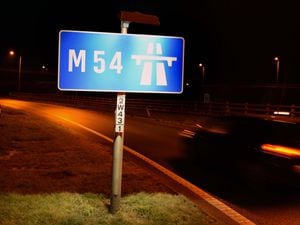'Knife crime emergency' with 10 offences happening daily
Ten knife crimes are happening in the West Midlands every day – with nearly half of the victims aged under 25.

Figures show there have been more than 2,000 offences involving a blade in just six months.
In Staffordshire, the number of criminals caught with knives or dangerous weapons has hit its highest level since 2010, official figures have revealed.
A total of 402 offences of possessing or making threats with blades or offensive weapons resulted in a conviction or caution in the county in 2018-19, according to the Ministry of Justice (MoJ).
It marks a 40 per cent rise over five years and the highest number of prosecutions since the MoJ published this set of knife crime statistics.
In the West Midlands Police area the number of prosecutions fell slightly over the past year to 1,347, a figure which represents a 40 per cent rise from 2014-15.

West Midlands Police Chief Constable Dave Thompson has called the issue a “knife crime emergency” and called for more early intervention work to direct youngsters away violence.
A report to the Police and Crime Commissioner’s strategic board shows that since November 2018 a total of 2,183 knife offences have been recorded in the West Midlands Police area – with 46 per cent of victims under 25.
Over the six month period, the victims aged under 25 include 83 in Sandwell, 69 in Wolverhampton, 67 in Dudley and 61 in Walsall.
The report shows a spike in knife crime between February and April, including seven murders, while more than 400 offences were recorded in March alone.
West Midlands Police and Crime Commissioner David Jamieson insists early intervention is the key to reducing knife crime.
He has secured £7.6m in funding to tackle the issue, as well as £3.4m for the region’s force to launch a new violent crime unit.
The report also shows a strong link between school exclusions and youngsters getting drawn into crime, and comes as WMP is set to become the country’s first force to keep a log of crimes involving excluded pupils.

Mr Jamieson said: “A disproportionate number of victims of knife crime are under 25. Young people are more likely to be both victims and perpetrators of crime.
“That is why it is crucial that we intervene early. This report is also clear that without long term funding for other services as well the police are crucial in breaking the cycle of violence.
"Youth services, mental health and addiction services have been shattered over recent years.
“Putting long term funding back in place and building up those services would have a huge impact on reducing violent crime.”
Justice Minister Robert Buckland said: “This Government is committed to doing everything in its power to stop knife crime and its devastating consequences on lives and communities.
“These figures show that if you are caught carrying a knife you are more likely to be sent to prison – and for longer – than at any time in the last decade.
“But we are doing more. The Government’s Offensive Weapons Act will make it harder for young people to buy knives and help the police target those most at risk of being drawn into serious violence.”
The figures show that more defendants convicted of knife offences were given immediate jail sentences, up to 37 per cent from 22 per cent the previous year.
The average length of jail sentences in 2018-19 went up from 5.5 months to 8.1 months, the longest since 2009.
About three quarters of criminals were first-time offenders.

Charlotte Pickles, director of the Reform think tank, said the figures showed that tougher sentences for knife crime were “not the answer”.
“Politicians focusing on law enforcement are mistaken – you cannot arrest your way out of this,” she said.
“Instead of pledging thousands more police offices, if candidates vying to become prime minster really want to stem this violence they must also focus on the root causes – poverty, school exclusion, poor mental health and drugs.”
Diana Fawcett, chief officer of Victim Support, said: “It’s distressing to see knife crime offences continue to rise and the impact of this is something we are dealing with every day in our work.
“It’s so important to remember that behind these statistics are victims, bereaved families and friends, witnesses and communities who have all been left devastated.”
Meanwhile the Knife Angel sculpture could be unveiled in Wolverhampton in the coming weeks as it continues its tour of the country.
The piece is made up of knives that have been taken off the streets of the UK and was created as a symbol reflecting rising violent crime across Britain.
Discussions are being held with police chiefs in the city, with Queen Square being mooted as a possible location.





